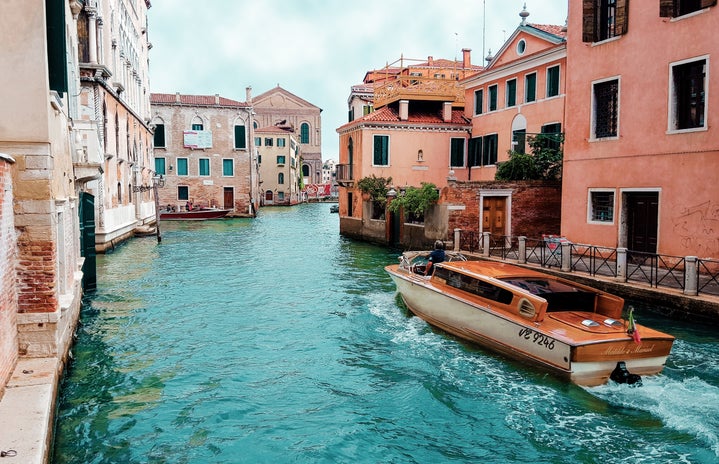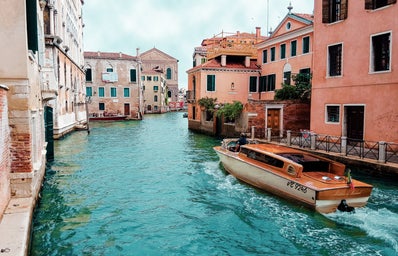If I have learned anything from my cultural heritage and cultural property law class, it’s that cultural heritage is important to who a people or work of art are, and when you take that away you are left with nothing. In fact, the prevailing idea is “To actually protect the cultural value, there is a bond between a work of art and its context, which if severed would destroy the cultural value of the object.” Or, in a non-legal context that something from one culture makes more sense in the country of its origin because that is the country in which its context can be most fully understood.
If that’s confusing, think about it in terms of the Eiffel Tower. Even though there is a copy of it in Las Vegas, we still think of the one in Paris, and the copy is used by the hotel (the Paris Las Vegas) to evoke a sense of French culture. This demonstrates that an object like the Eiffel Tower, can keep the cultural association of where it is from, but regardless of how nice it (or the copy of it) may be, it will never truly make sense in another context like Vegas, and belongs truly to Paris.
I think this idea illuminates something about the human experience, particularly that of Americans, where cultural heritage in the great melting pot is so important. We can, in a sense, be taken out of the country our family is from, but I am convinced that we still carry it with us, much like a statue shipped from one country to another, carrying with us the context of who we are, even to a new place. We are in the United States, and meant to be so, but still to varying degrees representative of the country from which our family has immigrated.
People in other countries WILL think it is odd that Americans say, “I’m half-Irish and half-Italian.” My friend Ricci made the mistake of asking me this, and I quickly clarified that my family is from there, while I am American. However, when we use such language, intentionally or not, we claim our family’s heritage as our own in an impactful way, seemingly expressing who in a global sense.
Perhaps the idea spans from the large Ellis Island boom, when it was assumed immigrants were from somewhere else, and therefore not “American,” or simply a tribute to the fact that all of us come from somewhere else and acknowledging the importance of it. Since studying abroad, my personal connection with how culture shaped me has been magnified, as studying in Italy has allowed me to connect in a greater way with my heritage.
I’ve always considered myself proud to be the granddaughter of an Italian immigrant who struggled to come to the United States and lived out his own American dream here. My grandfather, Ferdinando, moved to the U.S. from a small village called Cuccaro Vetere in the Campania region of Italy. He married my grandmother, Anella, (they had been long distance for a long time and wrote each other letters like a Hallmark movie), struggled, learned English and became an incredibly successful doctor.
However, even though he moved to the United States, and was incredibly proud to be a citizen, he never forgot where he came from and held on to his culture, taking my mom and her siblings to visit frequently.
My grandmother made Italian food, celebrated Italian holidays and emphasized certain values, which meant my mother and her siblings were able to pass pieces of Italian culture along to myself and my cousins because they were raised in it. I must critique the American melting pot in this way, because from my own experience and observation certain cultures or people have held onto their culture, while for others it seems to have “melted” away.
I believe part of this stems from the previous predominant oppressive culture of “acting” American, out of fear of being labeled as foreigners. My dad still remembers when another boy told him that he couldn’t play with them because he was “one of them,” which referred to the fact that he was Irish and Catholic. The irony is that according to a study by the American Community Survey, Irish heritage is third most prominent in the United States.
I’ve been fortunate enough to travel to both Ireland and Italy; experiences that were both impactful and enjoyable, because it felt like a piece of me was reflected in both countries. Last summer, my family visited Ireland, traveling through Dublin, Killarney, Galway, and The Ring of Kerry. Along the trip, I felt I learned about pieces of myself that tied to my culture. For example, the spans of green fields, a love of stories and general joy for others seemed present, and made me feel closer to the heritage I knew next to nothing about, aside from all the lyrics to “The Rattlin’ Bog.” In any case, my fervent love for fiddles suddenly made sense, as they are played in most traditional Irish music. Of course, anyone can like nature, fiddles or be joyful.
However, as someone who isn’t really connected with their heritage, finding a piece of it reflected inside of myself meant a lot. I didn’t love the food (sorry dad) but I think for the first time this Saint Patrick’s holiday with my walnut-just-passing-as-sometimes-reddish-brown hair and green outfit I didn’t feel like an imposter masquerading as an Irishman.
My experiences, as you may guess, with Italy have been understandably deeper. The first time I visited Italy, I enjoyed it. Honestly, though I was too young and overwhelmed to really understand or experience the culture. I was just meeting my cousins, eating the food and seeing the sights from one end of the country to the next. My second trip two years ago gave me a better understanding about my cultural heritage, and more importantly, spending time with my extended family here and truly living with and experiencing the culture gave me valuable insight into my immediate family, particularly my mother and grandmother.
I have always been passionate about my heritage. It’s a running joke of sorts in my friend group, because I don’t shut up about Italy. I study Italian history on my own time, listen to Italian music, and have done my best to somewhat cobble together an education in its language.
Perhaps it is my exposure then, both by choice and from my mother’s family that has allowed me to feel so at home here. All of the “food” traditions – caprese, pasta, the importance of being present for meals as a family, good cooking and recipes measured by the eye made sense. Halfway around the world, I am eating food that tastes like home (even if they don’t have my chicken alfredo).
In conjunction with this, my mother and grandmother love to entertain, something I’ve noticed firsthand. My mother is happiest when she has people in her house and eating food. This is taken from her Italian culture where a social life is incredibly important, and entertaining constantly
here is normal. My mother was always the one who volunteered to make something for a bake sale or brings two or three trays of brownies for the entire cast and crew of U of S Players’ shows. It’s also the little things like why there are giant landscapes of Venice or Bellagio on my wall. This country means a lot to my mother, and as such she likes to have art of it. Even the lemons that decorate half of our kitchen are explained by their popularity both in cooking and decoration in southern Italy.
My mother’s extreme prioritization of education makes sense because of how competitive the educational system is here. While I used to be annoyed with my mother’s mapping of my future, it’s something I’ve noticed is normal here, as I see my aunts and uncles with their hopes for their children planned similarly.
Altogether, this culture is a big part of who I am today, and I am unsure if I would be the same person without it, as it connects me both to my past and present, both in tradition, values, and personality.
Studying in Italy has also given me valuable insight into my grandfather, who unfortunately passed away from brain cancer in 2005, when I was two years old. I barely remember him, and I’m not sure how much of the memories I have are real or derived from stories and photos. Here, I feel like in a way he’s walking with me, smiling with me as I walk around Milan, visiting Bologna or Venice or when I badly try to cobble a sentence together in Italian. Ironically, he’s in part the reason I can be here; he set up a fund for my college, and as such is in a way enabled my study abroad experience. I just hope he would be proud of the fact that I am here in a country I know he loved deeply.
Most importantly, is a more intangible feeling that I’m not sure I know how to articulate. I feel an odd level of comfort here, and I am happier than I have ever been. Maybe it’s the European lifestyle, but I feel like my soul knows this place is home in an odd way. Maybe such language is fanciful, or better befitting a poetic publication, but for me it is the truth. I feel like something inside of me says “I belong here,” and I know I’m not crazy because other international students who are Italian feel the same way. Many of them talk about how this place feels like home, and it all traces back to their cultural roots here in this country.
Why does any of this matter? It shows the paramount importance and benefits of connecting with your roots through travel. It doesn’t matter if you study abroad, or take a brief trip, it only matters that you see and try to experience it because you’ll not only learn about where you are from, but your family and yourself. At the very least I can promise you will leave changed as I know I have. Buon Viaggio, no matter where life or your travels may take you.
Sources: The Most Irish States | Best States | U.S. News (usnews.com)


